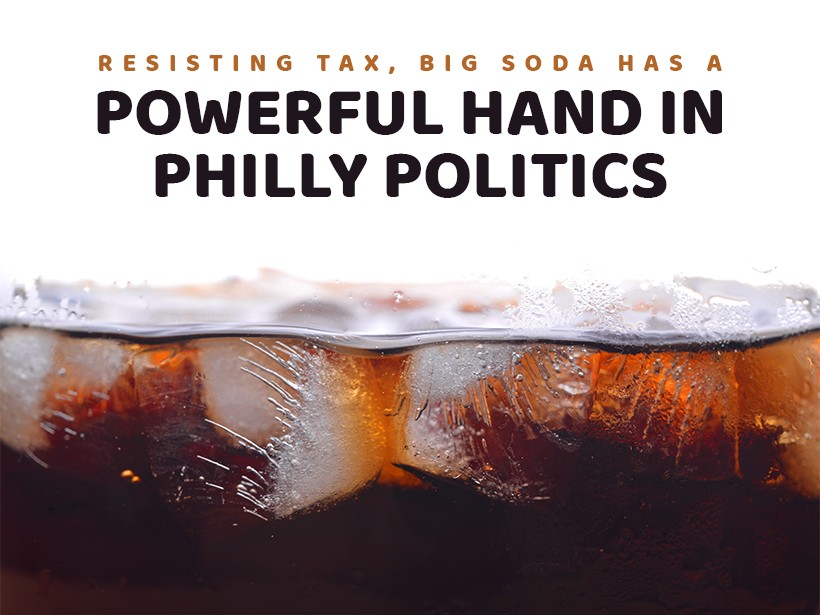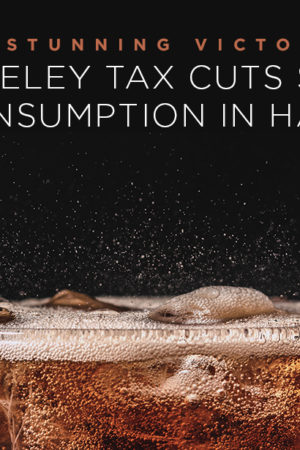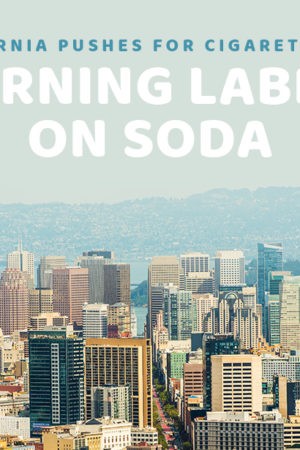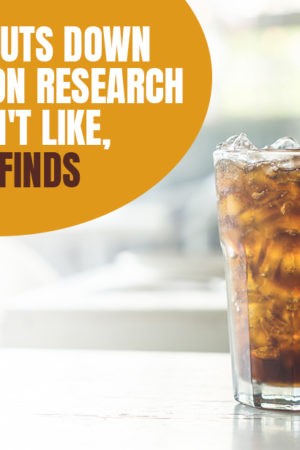Philadelphia has been thrown back into a battle over the city’s soda tax, proving once more that private interests are capable of driving the issues of concern in local politics. An astounding 40 percent of all the lobbying money spent in Philly last year was in response to the 2017 soda tax, over which the soda industry continues to be up in arms. The American Beverage Association (ABA) trade group spent $1.5 million in what one spokesman described as an equivalent response to the “bully pulpit of the mayor who gets a ton of free press when he goes anywhere.”1 (One is forced to consider, if only for a moment, why a collection of soda companies reflexively expects to be “covered” in the same way as an elected city official.)
Sufficed to say, the upcoming municipal elections have invited a resurgence of beverage industry money into the fray, as big-name brands attempt to unseat Mayor Jim Kenney and, eventually, roll back his administration’s tax.
Shady ads targeting the soda tax
The Ax the Bev Tax Coalition, an organization funded by the ABA, spent over $400,000 in April on a series of TV ads targeting the mayor. Indeed, the ABA itself has spent over $600,000 so far on the election, more than all of the special interests behind the mayor’s own super PAC.2
Like many soda taxes, the money generated is being reinvested in early childhood education and other important community programs. Through the Rebuild project, the mayor has directed tax money towards a city preschool program, a community school initiative, and the reconstruction of crumbling rec centers.3
It’s gotten to the point where Mayor Kenney’s opponents are now vying for the support of the soda super PAC. Responding to a question about whether he anticipated receiving the beverage industry’s financial backing during the mayoral campaign, the candidate Alan Butkovitz said, “I don’t know, but I sure hope so.”4
Papering over a crisis with dark money
Most frightening, perhaps, is the sad fact that Philly is one of the only places where super PACs are required to disclose the sources of their funding. In races across the country, the beverage industry is free to continue to stoke anti-tax sentiment without exposing their direct conflict of interest. And if there’s one thing they’ve proved, it’s their willingness to spend vast amounts at the local level to stifle any kind of growing national momentum.
What these companies ignore entirely in their pitches and political ads against soda taxes is their underlying cause: a very real public health emergency. We certainly cannot expect PepsiCo and its competitors to take responsibility for the obesity crisis they have played a lead role in creating. What we can do, however, is refuse to lend them credence when they launch their misleading attacks, attacks they hope will undermine the sporadic first steps taken by cities and states across the U.S. as a step towards better public health.
NUTRITIONAL DISCLAIMER
The content on this website should not be taken as medical advice and you should ALWAYS consult with your doctor before starting any diet or exercise program. We provide nutritional data for our recipes as a courtesy to our readers. We use Total Keto Diet app software to calculate the nutrition and we remove fiber and sugar alcohols, like erythritol, from the total carbohydrate count to get to the net carb count, as they do not affect your blood glucose levels. You should independently calculate nutritional information on your own and not rely on our data. The website or content herein is not intended to cure, prevent, diagnose or treat any disease. This website shall not be liable for adverse reactions or any other outcome resulting from the use of recipes or recommendations on the Website or actions you take as a result. Any action you take is strictly at your own risk.
- California Pushes for Cigarette-Like Warning Labels on Soda - July 1, 2019
- Is a Slowdown in Australia's Sugar Consumption a Sign of More to Come? - June 24, 2019
- Groundbreaking Study Says the Sugar Rush Doesn't Exist - June 12, 2019































